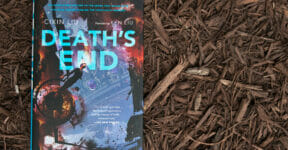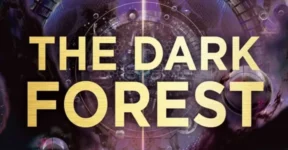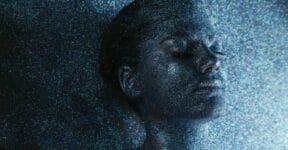Liu Cixin, the author of the Remembrance of Earth’s Past trilogy, made a name for himself among the world’s most respected sci-fi writers when the first volume of the trilogy—Three-Body Problem—won a Hugo for best novel in 2015. It is the first, and so far, the only English translation novel to have received the award.
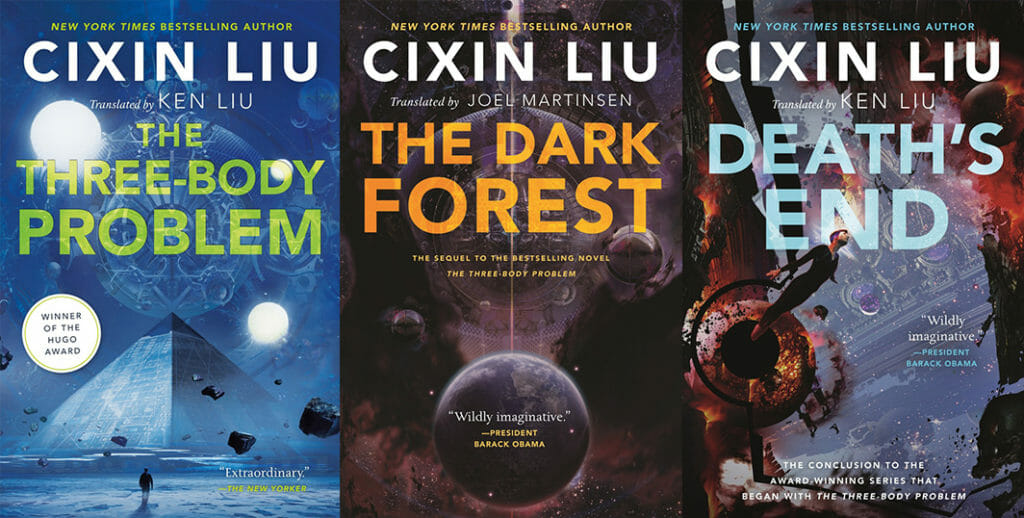
Following the publication of China 2185 in 1989, he subsequently became known as the country’s first cyberpunk author. He has been a long-established writer in the country, producing mostly short fiction for Sci-Fi World magazine. And by the time Three-Body Problem came out as a stand-alone book in 2008, he had already won three Galaxy Awards in 2001, 2005, and 2006.
Hard to Follow
The English translation of Three Body Problem was published in November 2014, and it immediately grabbed Western readers’ attention. It was an instant hit, but not because of its easy readability. The pacing often feels old-fashioned, and the structure is not always comfortable. There are two main reasons:
Chinese Context
The Three-Body Problem was originally written in Chinese and translated into English by American author Ken Liu. While the translation makes the novel more accessible to a broader audience, the Chinese context remains quite a challenge. The background story in the first book is set during the dark days of the Cultural Revolution (1966 – 1976), a strange time when academics and scientists were persecuted for practicing science.
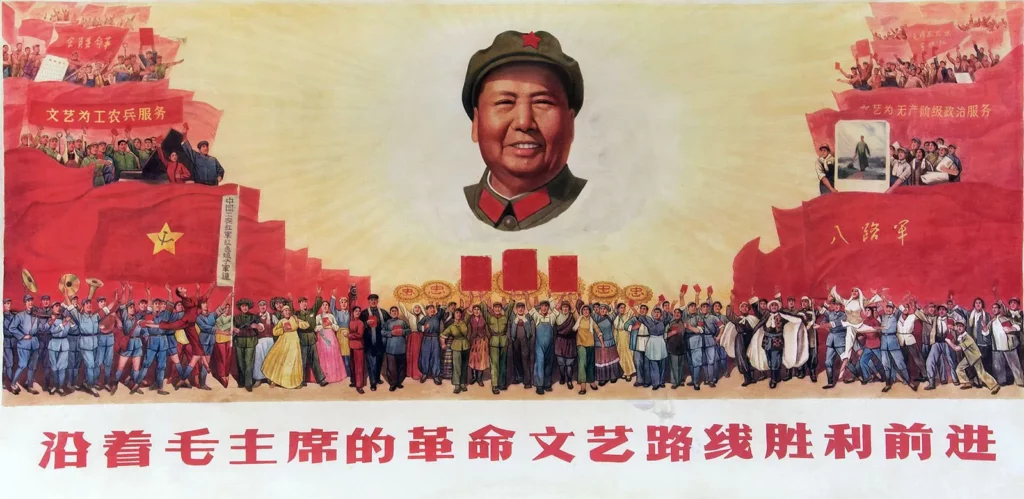
Every Chinese reader should be able to understand the significance of the events easily, but their Western counterparts will need some extensive footnotes to grasp all the implied connections between plot points. Life in China under Mao Zedong, especially during the time period, is an unrecognizable subtext. In addition, the novel’s world-building sequence takes long passages to paint clear imagery of the situation. Without any prior knowledge of the country’s past political and social climates, the book can be hard to follow.
Hard Science Fiction
Science plays the most significant role in the story. The protagonists find themselves grappling with the challenges and implications of science to achieve their objectives. Although the author provides lengthy explanations to make everything more comprehensible, there are pages where readers may find the expositions intrusive and feel like they are lost in translation. It doesn’t take an IQ genius to remember the book, only an extra willingness to go back and forth between the pages.
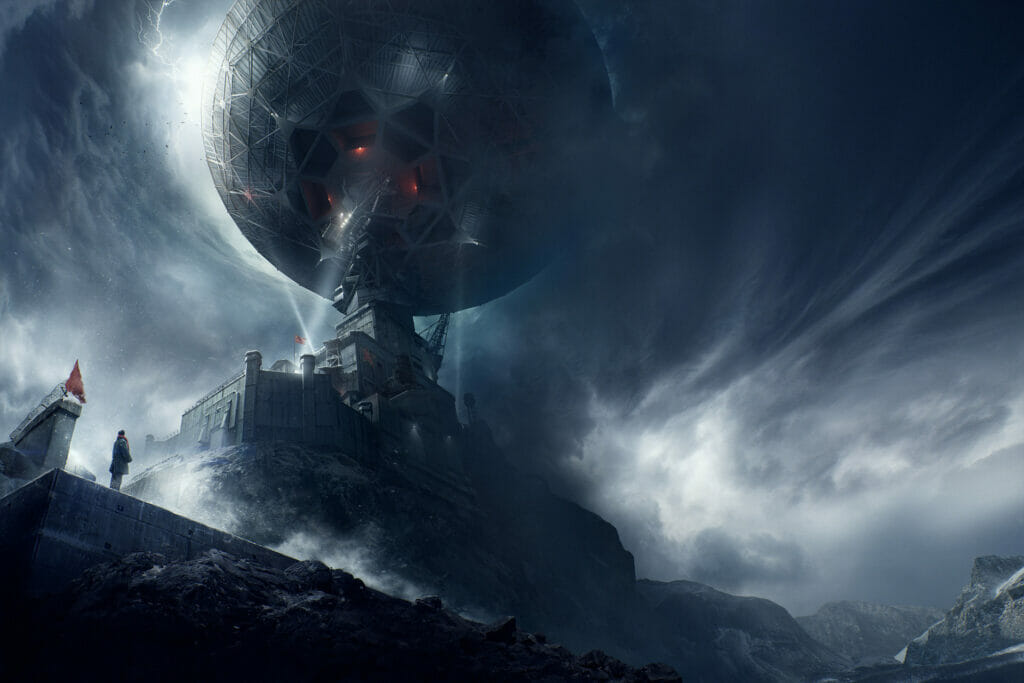
The Remembrance of Earth’s Past series is often considered hard science fiction, a novel with a heavier emphasis on the “science” side as the story unfolds. All three books in the trilogy contain extensive texts filled with technical terminologies to explain various subjects from artificial intelligence to quantum mechanics. Even the title of the first volume is a real scientific term, which refers to the practically unsolvable classical mechanics problem of the subsequent motions of three objects with intersecting gravitational fields.
And then there is the applied science portion. The Three-Body Problem doesn’t suffer from any lack of futuristic tech ideas. It is loaded with talks of advanced devices like haptic feedback suits, carbon nanotubes, radio astronomy, and hyper-realistic video games, among others. Everything is integrated into the plot. Pages do not just go by.
Jargon
All three books in the series follow the same basic structure that relies heavily on space-age technologies to keep the storyline going. The biggest downside of such an approach is that the characters have a small room to develop, rendering them less polished. It appears that the characters are mere tools to bring readers to one big idea after another.
In the first sequel, The Dark Forest, the author gets readers to imagine a fascinating solution to the Fermi Paradox. Named after Italian-American physicist Enrico Fermi, the paradox questions the discrepancy between the high probability of intelligent life forms on planets other than Earth and the lack of conclusive evidence to support the hypothesis. The author brings up the dark forest theory, an argument that “being seen and identified” by extraterrestrial life is like inviting invaders. Humans are the only species bold enough to expose themselves to the universe.
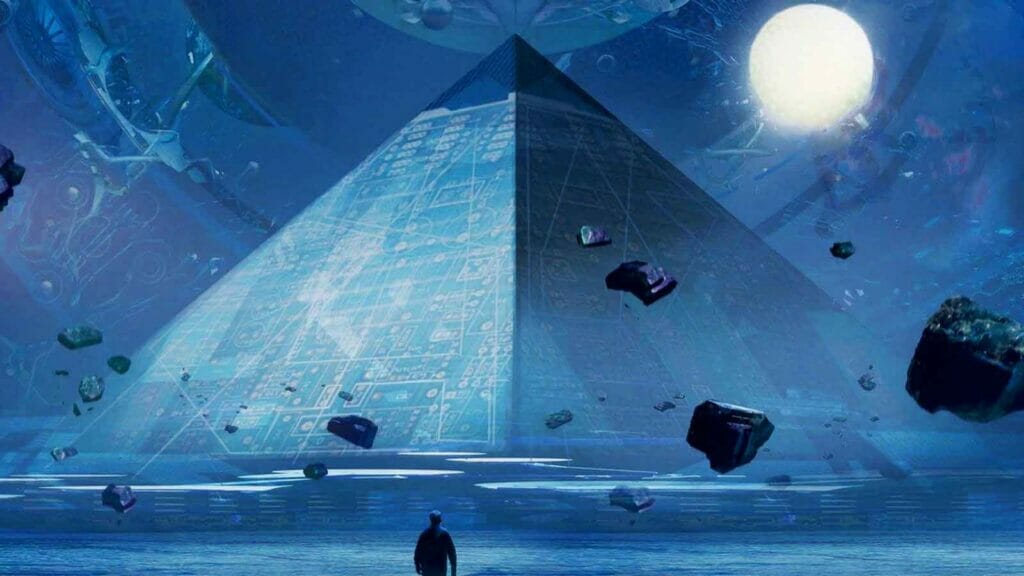
Unfortunately, the decision to use the theory brings another problem. Each time a discussion about the series comes up, some people like to attribute the idea to Liu Cixin. Any keen sci-fi reader knows the theory has appeared many times in other works, such as The Forge of God by Greg Bear and the Berserker series by Fred Saberhagen. The risky implication of seeking extraterrestrial life has been explored before by other authors.
The second sequel, Death’s End, is often described as a satisfying close to an epic trilogy. Much of the story is a new arc rather than a direct continuation of the previous books. It explores a larger universe, which is a good story on its own but not tightly connected to the series’ preceding titles. Furthermore, the flaws remain prominent; the trilogy’s concluding novel is jam-packed with oppressively heavy technical exposition flooded with scientific jargon and theories.
Strange Characterization
A one-sided approach to storytelling in favor of a downright leaden esoteric elucidation leads to modest characterization at best. For any typical Western reader, the psychology of each character seems less optimized. The author focuses only on what the characters do and the implications of those actions. As a result, readers must surrender their curiosity about the characters’ decision-making process. There is barely any attempt to explain why someone does something.
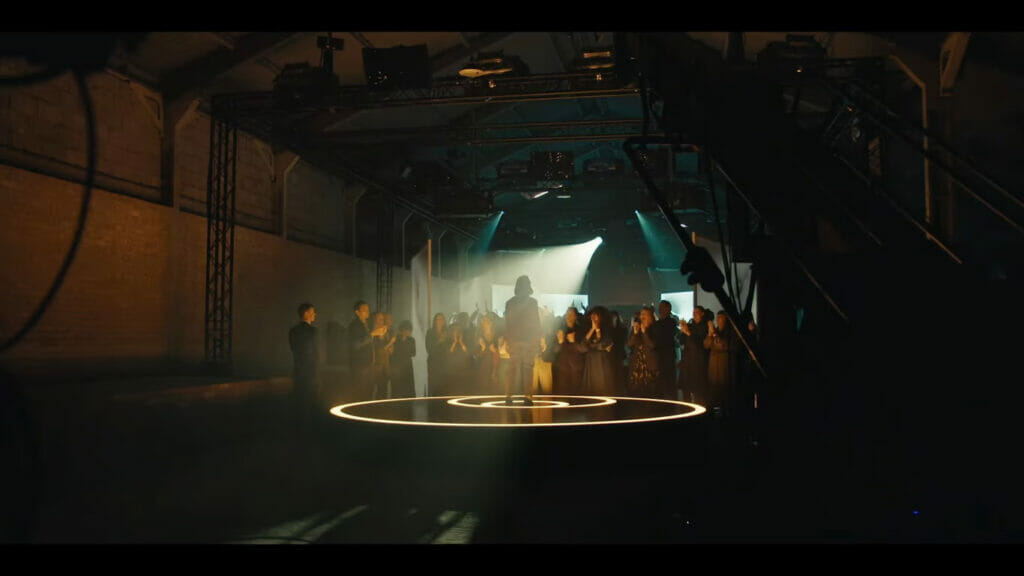
It is as if the character’s every action is determined by fate instead of free will. Interpersonal conflicts do exist but are hardly explored. Such a storytelling style is in stark contrast with typical English fiction where readers are accustomed to reading extensive numbers of pages to understand a character’s thought processes, motivations, and internal conflicts.
The combination of Chinese historical subtext, technical jargon overload, and a different approach to characterization can make the translated version of Remembrance of Earth’s Past difficult to read, but not impossible.
We read the series and frequently back and forth to reread portions of the hard science sections that we unfamiliar to us. But we think the books are amazing! How about you? Have you read the Remembrance of Earth’s Past series? Did you like the books?
Let us know. We’d love to hear from you.
Other things you might want to know about.
What is the cyberpunk genre?
According to Merriam-Webster.com, its roots date back to the technical fiction of the 1940s and 1950s. The word cyberpunk was coined by writer Bruce Bethke, who wrote a story called Cyberpunk in 1980. The term comes from joining “cybernetics,” the science of replacing human functions with computerized ones, and “punk,” the raucous music and nihilistic sensibility that became a youth culture in the ’70s and ’80s. Cyberpunk didn’t really take off until William Gibson’s book Neuromancer was published in 1984.
Go to Merriam-Webster.com for more information on cyberpunk.
Who are the best authors of cyberpunk?
According to becomeawritertoday.com, there are 14 authors that exemplify the genre of cyberpunk.
- William Gibson
- Bruce Sterling
- Neal Stephenson
- John Shirley
- Pat Cadigan
- Philip K. Dick
- Rudy Rucker
- Greg Bear
- Cory Doctorow
- Paolo Bacigalupi
- Masamune Shirow
- Ernest Cline
- Richard K. Morgan
Go to becomeawritertoday.com for more information about these cyberpunk authors. The article is titled “14 Best Cyberpunk Authors You Need to Read.”
What is hard science fiction?
According to sfbook.com hard science fiction puts emphasis on the scientific or technical details and/or on the technical accuracy. Many authors who write hard science fiction have a technical or scientific background. Liu Cixin’s Remembrance of Earth’s Past is considered to be hard science fiction.
Go to sfbook.com to see other novels that are hard science fiction.


